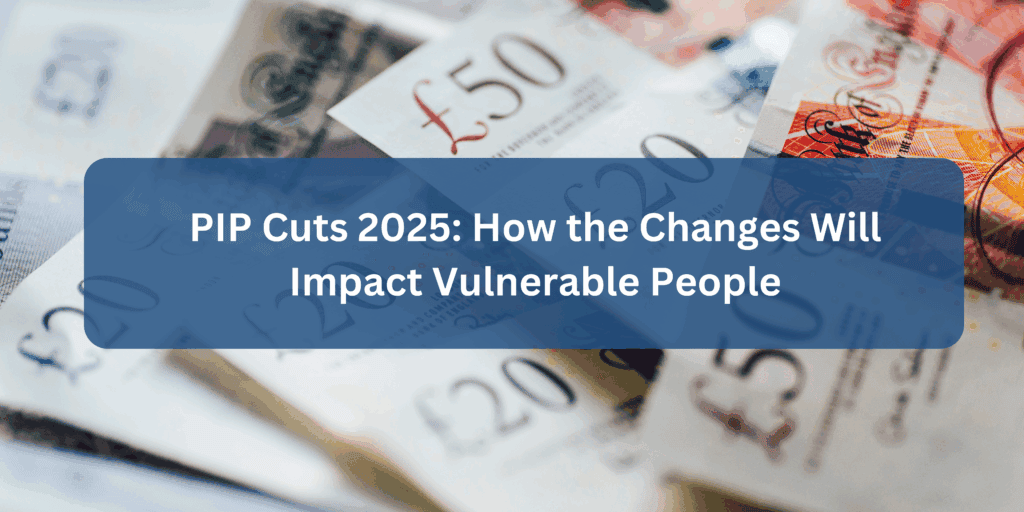
PIP Cuts 2025: How the Changes Will Impact Vulnerable People
Let's talk about something that's causing quite a stir these days - the UK government's proposed changes to Personal Independence Payment (PIP) and related disability benefits. It's one of the biggest shake-ups to welfare support for disabled and vulnerable people we've seen in recent years. The government is presenting these reforms, announced in the 2025 Spring Statement, as essential for keeping the welfare system sustainable and encouraging more people into work. But if we're honest, the real-world consequences of these cuts are already creating enormous worry and distress for those who'll be most affected.
What's Actually Being Proposed?
So, what's happening with PIP? Well, the government wants to make it harder to qualify for the daily living component by requiring claimants to score at least 4 points in a single daily living activity, rather than being able to add up points from different activities. This change will kick in for new applicants from November 2026 and for current recipients when they have their next review.
The Department for Work and Pensions (DWP) reckons about 370,000 current recipients will lose their entitlement completely, and 430,000 future claimants won't qualify at all. We're talking about an average loss of around £4,500 per year per household - not small change by any means! Some independent analyses suggest the true number affected could be as high as 1.3 million people.
The Real Impact on Real People
Let's be clear about what this means for vulnerable people across the country:
Financial Hardship: Losing PIP will take away crucial income from many disabled people who already face higher living costs because of their conditions. The government's own figures show that 3.2 million families will lose out, with an average annual loss of £1,720. Charities are warning this will push many deeper into poverty, with potentially 250,000 more people—including 50,000 children—falling below the poverty line.
Mental Health Struggles: The uncertainty and fear created by these proposals are already taking their toll. Many claimants, especially those with severe mental illness, are reporting increased anxiety, distress, and even suicidal thoughts as they face the prospect of losing vital support. For some folks, just hearing about the planned cuts has triggered mental health crises.
Losing Independence: PIP isn't just extra cash - many people use it to pay for mobility aids, adapted vehicles, and personal care. Without this support, many risk losing their independence and becoming more isolated, with greater reliance on family carers who are already stretched thin.
Impact on Carers: It's not just the disabled individuals who'll suffer - the tightening of PIP eligibility will also hit unpaid carers, as entitlement to Carer's Allowance and the carer element of Universal Credit is often linked to the cared-for person receiving PIP. The DWP estimates 150,000 carers will lose access to these benefits as a result.
Hitting Disabled Households Hardest: While some families will benefit from increases in the Universal Credit standard allowance, a whopping 96% of those losing out will have a disabled family member. That really highlights how these changes will disproportionately affect those who are already vulnerable.
What's The Government Saying?
The government argues these reforms are necessary to control rising costs and focus support on those with the highest needs. But disability charities and campaigners have been quick to condemn the cuts as "immoral and devastating," pointing out that the extra costs of living with a disability don't magically disappear just because eligibility criteria get tighter. Critics are also highlighting the lack of proper consultation and the risk that thousands will be left without the support they need to live with dignity.
How Can Sheffield Credit Union Help?
In these challenging times, local organisations like Sheffield Credit Union (SCU) become even more important in supporting vulnerable people:
Affordable Loans and Savings: SCU offers low-cost, flexible loans to help members manage unexpected expenses or consolidate high-interest debts, providing a much safer alternative to payday lenders. Their "save as you borrow" approach encourages financial resilience, helping members build a safety net even while repaying loans.
Personalised Financial Support: SCU provides tailored advice and support to members struggling with the cost of living, including those affected by benefit changes. They work with local partners to offer benefits checks, debt advice, and referrals to hardship grants when needed.
Financial Inclusion: As a member-owned cooperative, SCU is committed to promoting financial inclusion across Sheffield. They help people with poor credit histories access fair loans and improve their financial standing, reducing the risk of exclusion and exploitation.
Community Solidarity: SCU's local focus means that money stays within the community, supporting those most in need. They understand the unique challenges faced by Sheffield residents and are dedicated to ensuring no one faces financial hardship alone.
Final Thoughts
The proposed PIP cuts threaten to deepen poverty, isolation, and distress for some of the UK's most vulnerable citizens. While the government chases fiscal savings, the social and human costs could be catastrophic.
In this context, the work of organisations like Sheffield Credit Union becomes ever more vital—offering practical support, financial resilience, and a sense of solidarity to those left behind by national policy. As the debate continues, it's essential that the voices of disabled people and their advocates remain front and centre, demanding a welfare system that truly supports those who need it most.
